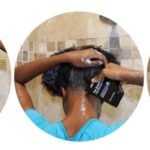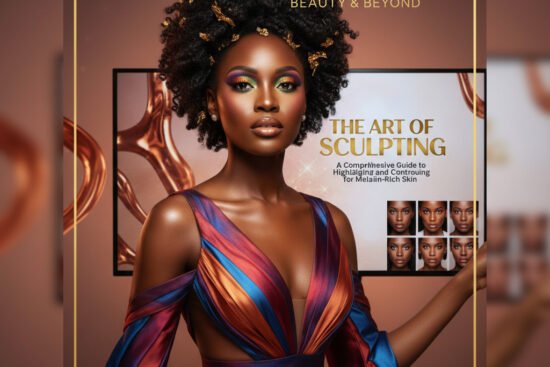
Maintaining a healthy scalp is crucial for the overall well-being of your black hair. As Adekoya wisely pointed out, brittle hair can easily lead to hair breakage, which is something we all want to avoid. So, how can you ensure that your scalp remains in prime condition to promote the growth and strength of your luscious locks? In this article, we will explore effective tips and techniques that will help you maintain a healthy scalp for your beautiful black hair, ensuring it stays vibrant and full of life. Say goodbye to hair breakage and hello to a flourishing mane that will make heads turn!
Understand Your Hair Type
Identify your hair type and texture
Understanding your hair type is crucial for maintaining its health and beauty. Take a closer look at your hair and determine if it is straight, wavy, curly, or kinky. Additionally, examine the texture of your hair, as it can range from fine to medium to coarse. By identifying your hair type and texture, you can better tailor your hair care routine to meet its specific needs.
Understand the unique needs of your hair type
Each hair type has its own set of characteristics and requirements. For example, straight hair tends to become oily more quickly and may require more frequent cleansing. On the other hand, curly and kinky hair can be more prone to dryness and require additional moisture. By understanding the unique needs of your hair type, you can provide it with the care it requires to thrive.
Tailoring your hair care routine to your type
Once you have identified your hair type and understood its unique needs, it’s time to customize your hair care routine accordingly. Use products that are specifically formulated for your hair type, such as shampoos, conditioners, and styling products. Additionally, consider incorporating treatments and techniques that cater to your hair type, such as deep conditioning treatments for dry or damaged hair. By tailoring your hair care routine to your specific type, you can promote healthier and more manageable hair.
Regularly Cleanse and Condition Your Hair
Use gentle, pH-balanced shampoos
When it comes to cleansing your hair, it’s important to choose a gentle shampoo that is pH-balanced. Harsh shampoos can strip away the natural oils from your hair, leading to dryness and damage. Look for shampoos that are sulfate-free and contain nourishing ingredients like aloe vera or coconut oil. By using gentle, pH-balanced shampoos, you can effectively cleanse your hair without compromising its health.
Prioritize deep conditioning treatments
Deep conditioning treatments are essential for maintaining the moisture and overall health of your hair. These treatments provide intense hydration and nourishment, helping to combat dryness and prevent breakage. Consider incorporating a deep conditioning treatment into your regular hair care routine, ideally once a week or as needed. Look for deep conditioners that are specifically formulated for your hair type to maximize their effectiveness.
Tips on frequency of washing black hair
A common question among individuals with black hair is how often they should wash their hair. The frequency of washing black hair can vary depending on factors such as hair type, texture, and personal preference. While some people may prefer to wash their hair more frequently, others may find that washing once every 1-2 weeks is sufficient to maintain their scalp health and hair’s natural oils. Experiment with different washing frequencies to find what works best for your hair.
Moisturize Your Scalp
Importance of proper hydration to the hair
Proper hydration is essential for maintaining the health and vitality of your hair. When your scalp is adequately moisturized, it helps to prevent dryness, itching, and flakiness. Inadequate hydration can lead to a dry scalp, which can contribute to hair breakage and other scalp issues. Ensure that you moisturize your scalp regularly to maintain its optimal health.
Selecting the right moisturizers for black hair
When selecting moisturizers for black hair, it’s important to consider the specific needs of your hair type and texture. Look for products that contain hydrating ingredients such as shea butter, jojoba oil, or argan oil. These ingredients penetrate the hair shaft, providing deep moisture and nourishment. Avoid moisturizers that contain harmful chemicals like sulfates or alcohol, as these can strip away moisture from your hair and scalp.
Avoiding harmful chemicals
Be mindful of the products you use on your hair, as certain chemicals can be damaging to its health. Avoid products that contain sulfates, parabens, and other harsh ingredients. These substances can strip away the natural oils from your hair, leaving it dry and prone to breakage. Opt for natural and organic products whenever possible, as they are generally gentler on your scalp and hair.
Dry Your Hair Correctly
Components of correct drying techniques
Properly drying your hair is essential to prevent damage and breakage. When drying your hair, start by gently squeezing out excess water with a microfiber towel or an old t-shirt. Avoid rubbing your hair vigorously with a regular towel, as this can cause frizz and breakage. Once excess water is removed, allow your hair to air dry naturally or use a diffuser attachment on your blow dryer to minimize heat damage.
Avoiding hair damage while drying
To avoid hair damage while drying, it’s crucial to handle your hair with care. Avoid using high heat settings on your blow dryer, as excessive heat can weaken your hair and make it more susceptible to breakage. Additionally, refrain from brushing or combing your hair while it is wet, as wet hair is more fragile and prone to breakage. Instead, use a wide-toothed comb or a brush specifically designed for wet hair to gently detangle and style.
Choosing the right types of towels for drying hair
The type of towel you use for drying your hair can make a significant difference in its health. Instead of using regular bath towels, which can be rough and cause frizz, opt for microfiber towels or old t-shirts. These materials are gentler on the hair shaft, helping to minimize frizz and breakage. Additionally, consider using a silk or satin pillowcase, as these materials create less friction and prevent excessive moisture loss from your hair while you sleep.
Eat a Nutrient-Rich Diet
Key nutrients for hair health
Maintaining a nutrient-rich diet is crucial for promoting the health and vitality of your hair. Key nutrients that contribute to hair health include vitamins A, C, D, E, and biotin. These vitamins help to nourish the hair follicles, promote hair growth, and prevent hair loss. Additionally, minerals such as iron, zinc, and omega-3 fatty acids are essential for maintaining strong and healthy hair.
Impact of your diet on your hair health
What you eat can directly impact the health of your hair. A diet rich in fruits, vegetables, lean proteins, and whole grains provides the necessary nutrients for healthy hair growth. On the other hand, a diet high in processed foods, sugars, and unhealthy fats can lead to nutrient deficiencies and contribute to hair thinning and brittleness. Remember to prioritize a balanced and nutrient-rich diet to support the overall health of your hair.
Effect of water intake on scalp health
Staying hydrated is not only essential for overall health but also for the health of your scalp. Proper water intake helps to maintain the moisture balance in your scalp, preventing dryness and itchiness. Inadequate water intake can lead to a dehydrated scalp, which can cause hair dryness and breakage. Aim to drink at least 8 cups (64 ounces) of water daily to keep your scalp and hair adequately hydrated.
Protect Your Hair from Heat
Common causes of heat damage
Excessive heat from styling tools such as flat irons, curling irons, and blow dryers can cause significant damage to your hair. Heat styling can lead to dryness, breakage, and split ends. Additionally, frequent use of high heat settings can weaken the hair shaft and make it more prone to breakage. It’s important to take measures to protect your hair from heat to maintain its health and integrity.
Selecting appropriate heat protective products
To protect your hair from heat damage, it’s essential to use heat protectant products. Look for heat protectant sprays or serums that create a barrier between your hair and the heat. These products can help to minimize the damage caused by high temperatures, reducing the risk of dryness and breakage. Apply the heat protectant product evenly throughout your hair before using any heat styling tools.
Safe heat styling practices
While it’s best to minimize heat styling as much as possible, if you choose to use heat tools, it’s important to do so safely. Use the lowest heat setting that can achieve your desired style and avoid leaving the tool in one spot for too long. Always keep the tool moving to distribute the heat evenly. Also, consider using heat tools with ceramic or tourmaline plates, as they provide more even heat distribution and minimize damage.
Prevent Breakage
Importance of frequent trimming
Regular trims are crucial for preventing breakage and maintaining the health of your hair. Split ends and damaged hair shafts can lead to breakage and hinder hair growth. By scheduling regular trims every 6-8 weeks, you can eliminate split ends and promote healthier and stronger hair. Trimming also helps to maintain the shape and style of your hair, preventing it from looking dull or lifeless.
Ways to prevent hair tangling
Hair tangling can lead to breakage and damage, especially for individuals with curly or kinky hair. To prevent tangling, it’s important to handle your hair gently and use the right tools. Start by detangling your hair using a wide-toothed comb or detangling brush, starting from the ends and working your way up. Additionally, consider protective hairstyles like braids or twists that minimize tangling and friction.
Understanding the link between brittle hair and breakage
Brittle hair is more prone to breakage, as it is weak and lacks elasticity. When hair lacks moisture or essential nutrients, it becomes brittle and fragile. Avoid excessive heat styling, harsh chemicals, and tight hairstyles, as these can contribute to hair brittleness. By focusing on proper hydration, nourishment, and gentle handling, you can strengthen your hair and reduce breakage.
Exercise Regularly
Impact of exercise on hair health
Regular exercise not only benefits your overall health but also has a positive impact on your hair health. Exercise improves blood circulation, including to the scalp, which promotes the delivery of essential nutrients and oxygen to the hair follicles. Additionally, exercise reduces stress levels, which indirectly benefits the health of your hair.
Types of exercise beneficial to hair health
While any form of physical activity can be beneficial to hair health, certain exercises can have a more direct impact. Cardiovascular exercises, such as running or cycling, increase blood flow to the scalp, promoting hair growth and overall scalp health. Yoga and stretching exercises improve flexibility and relieve stress, which can indirectly benefit your hair health.
Effect of sweat on the scalp
Sweat produced during exercise can affect the health of your scalp and hair. When sweat accumulates on the scalp, it can lead to irritation, itchiness, and potentially clogged hair follicles. To prevent these issues, it’s important to cleanse your scalp and hair after a sweaty workout. Use a gentle shampoo to remove sweat and any buildup, followed by a moisturizing conditioner to replenish moisture.
Reduce Stress Levels
Effects of stress on hair health
Stress can have a significant impact on your hair health, leading to issues such as hair loss, thinning, and scalp problems. When you experience high levels of stress, it can disrupt the natural hair growth cycle and cause hair follicles to enter a resting phase prematurely. This can result in increased hair shedding and overall hair thinning.
Stress reduction techniques beneficial for hair health
Reducing stress levels is essential for improving hair health. Engaging in stress reduction techniques can help promote relaxation and overall well-being, benefiting your hair in the process. Consider incorporating activities such as meditation, deep breathing exercises, yoga, or regular exercise into your routine. Additionally, prioritize self-care and make time for activities that bring you joy and help you unwind.
Consult a Trichologist or Dermatologist
Importance of professional advice in maintaining scalp health
While following general hair care tips can improve the health of your scalp and hair, there may be underlying issues that require professional attention. Consulting a trichologist or dermatologist specialized in hair and scalp health can provide valuable insights and personalized recommendations. These professionals can diagnose and treat specific scalp conditions or hair loss concerns, ensuring that you receive the appropriate care.
Signs you might need to seek a professional
If you experience persistent scalp issues such as excessive itching, flaking, or hair loss, it may be time to seek professional help. Other signs that indicate the need for a consultation include sudden changes in hair texture or the development of bald patches. A trichologist or dermatologist can perform a thorough evaluation, conduct necessary tests, and provide an accurate diagnosis and treatment plan.
Accessing appropriate health services for hair health
To access appropriate health services for your hair health, start by researching and finding reputable trichologists or dermatologists specializing in hair and scalp issues. You can ask for referrals from your primary care physician or seek recommendations from trusted friends or family members. Schedule an initial consultation with the chosen professional to discuss your concerns and determine the best course of action for maintaining your scalp health.
Remember what Adekoya said about brittle hair leading to broken hair? Adekoya’s statement emphasizes the importance of understanding and addressing hair brittleness, as it can contribute to breakage and hinder hair growth. Taking steps to keep your hair moisturized, protecting it from heat, and engaging in a healthy lifestyle can promote stronger and more resilient hair. By following the tips provided in this comprehensive article, you can cultivate a hair care routine that suits your specific needs and maintain a healthy scalp for your black hair.











